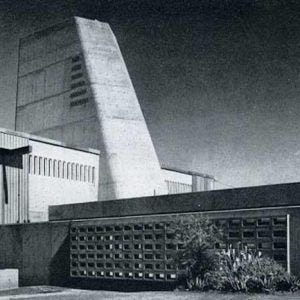 US-based Nano Nuclear Energy has formed a subsidiary, HALEU Energy Fuel. The purpose of the new company is “to develop, improve, and accelerate the domestic production of High-Assay Low Enriched Uranium (HALEU) to meet the growing demand for the fuel required to power advanced nuclear reactors.
US-based Nano Nuclear Energy has formed a subsidiary, HALEU Energy Fuel. The purpose of the new company is “to develop, improve, and accelerate the domestic production of High-Assay Low Enriched Uranium (HALEU) to meet the growing demand for the fuel required to power advanced nuclear reactors.
The subsidiary will focus on the future development of a domestic HALEU fuel fabrication pipeline for the broader advanced nuclear reactor industry. It also aims to develop a national laboratory fuel supply, and provide fabricated fuels for research purposes. It will play a crucial role in powering Nano Nuclear’s own proprietary portable advanced nuclear reactor, ZEUS, currently in the design stage.
“The ZEUS design will be modular and enable it to connect with local power grids or power systems, revolutionising recovery from natural disasters and how remote communities, mining project, and military bases, among others, obtain consistent electricity,” the company notes. The company website has extensive information on the global potential for nuclear in general and small reactors in particular. However, it has no information on the technology or reactor-type planned for ZEUS.
“Without a HALEU supply chain, many advanced reactor designs and advanced fuels will simply not be developed,” said Maria Korsnick, President & CEO of US nuclear trade organisation, the Nuclear Energy Institute. HALEU fuel, enriched to between 5% and 20% with uranium-235, is needed for many advanced nuclear reactors under development. The industry anticipates it may need nearly 600 tonnes of HALEU by 2030.
“We have invested a lot of time in discussions, planning, and strategizing with the industry’s foremost scientists, engineers, laboratory directors, and nuclear experts on the future of the nuclear and reactor space,” said Nano Nuclear Energy CEO & Director James Walker. “What we have understood is the unique importance of HALEU fuel in the development and propagation of advanced nuclear reactors, not just for our company, but for the benefit of the national development of nuclear technologies as well.” He added: “As such, we saw the opportunity to create a domestic fuel producer and distributor, and at the same time become a truly vertically integrated nuclear energy company.”
Dr Jeffrey L Binder, Nano’s Head of Nuclear Laboratories & Technologies, noted: “My relationships and connection with the numerous national laboratories across the United States put us in good stead, ensuring we have access to some of the most advanced technologies and preeminent minds in our journey to create a company capable of supplying domestically produced HALEU fuel to the broader marketplace.”
Russia is currently the only commercial source of HALEU and accounted for nearly 40% of global uranium conversion services in 2020. The US is now looking to develop its own HALEU production facilities in face of concerns about energy independence. The US Congress directed the Department of Energy (DOE) to establish a HALEU availability programme in the Energy Act of 2020 and the Nuclear Regulatory Commission (NRC) recently approved Centrus Energy’s request to make HALEU fuel at its enrichment facility in Piketon, Ohio. Moreover, in the recently signed Inflation Reduction Act (IRA) some $700m was allocated to develop a domestic supply chain for HALEU.
HALEU Energy Fuel says on its website that it “has identified major challenges for fuelling its anticipated portable micro reactors and is looking to invest its resources into developing enrichment facilities and securing enriched fuel”. The company “has identified an opportunity to work in combination with the US national nuclear labs to provide the country with additional sources of enriched nuclear fuel for its domestic and commercial nuclear industry development”.
It adds that it is seeking “collaboration with international industry and government involved in the enrichment of nuclear fuel, for the purposes of understanding the development challenges and resource requirements to realise a successful enrichment programme”. The company “intends to assist in the financing, staffing, and support of these projects to develop and deliver long-term and consistent sources of enriched uranium”.
Image courtesy of Nano Energy






